As the first debate looms, former vice president Joe Biden holds a commanding lead in the race for the Democratic Party’s presidential nomination. But unforced errors such as his remarks about segregationist senators James O. Eastland and Herman Talmadge threaten the core of his support—the African American electorate that up to now has favored him over not only white liberals but also African American candidates Cory Booker and Kamala Harris.
Biden’s lead rests almost entirely on his strength among African American voters, who constitute a large portion of the Democratic vote in almost every primary in the country. In the 18 states that cast votes on or before Super Tuesday, CBS polling data show that Biden enjoys the support of fully 50 percent of likely African American participants. Kamala Harris is a distant third, with 11 percent of African Americans, while Cory Booker has only 3 percent. By contrast, the white vote is split, with Biden at 26 percent, Warren at 21 percent, and Sanders at 16 percent.
Biden’s dependence on African American support underscores the potential consequences of the damage he inflicted on himself with his ill-advised remarks about cooperation with segregationist senators early in his career. “I was in a caucus with James O. Eastland,” Biden recalled. “He never called me ‘boy,’ he always called me ‘son’.” In response, Sen. Booker issued a stinging statement. “You don’t joke about calling black men ‘boys.’ Men like James O. Eastland used words like that, and the racial policies that accompanied them, to perpetuate white supremacy and strip black Americans of our very humanity. Vice President Biden’s relationships with proud segregationists are not the model for how we make America a safer and more inclusive place for black people.” Booker concluded by demanding an immediate apology from Biden for the “pain his words are dredging up for many Americans.”
In an encouraging sign for Biden, a dozen members of the Congressional Black Caucus came to his defense. “If he was able to work with Eastland, he’s a great person,” said Bennie Thompson, who represents a district in Eastland’s home state of Mississippi. House Majority Whip James Clyburn, the highest ranking African American in Congress, said that “I worked with Strom Thurmond all my life,” adding that “You don’t have to agree with people to work with them.”
After this impressive show of support, Biden refused to pull back, let alone apologize. Instead, he pushed back, testily. “Cory should apologize,” he insisted. “He knows better. There’s not a racist bone in my body; I’ve been involved in civil rights my whole career. Period. Period. Period.” Biden’s aggressive non-apology sparked a new round of criticism, this time with multiple candidates joining in, and it triggered commentary on the Biden campaign’s early decision to shield their candidate from the press.
Despite his ham-handed handling of this episode, Biden may well survive with his political standing more or less intact. But it has raised questions about the extent to which he has overcome the problems that torpedoed his previous races for the Democratic presidential nomination.
Biden heads into this race in a remarkably strong position. His support derives mainly from his eight years of service as former president Barack Obama’s vice president. Eighty-six percent of likely voters in the early states who are seriously considering supporting Biden cite this as a reason, compared to 57 percent for his policy stances. By contrast, 79 percent of those considering Sanders, 88 percent of those considering Warren, 82 percent of those considering Buttigieg, and 77 percent of those considering Harris cite their respective stances on policy issues as reasons for considering them. Surprisingly, the importance accorded to Biden’s service as vice president hardly varies across lines of gender, race, ethnicity, ideology, and age.
In addition to his support among African Americans, Biden’s perceived electability is a major asset. Seventy-eight percent of Democrats in the early primary states cite a candidate’s ability to defeat Donald Trump as “extremely important,” compared to just 40 percent who give this weight to having new policy ideas, while 74 percent think it’s best to nominate a candidate with extensive national political experience. Not surprisingly, among the likely voters considering Biden, 75 percent believe that he would probably defeat Trump. By contrast, just 51 percent of the voters considering Sanders view him as the probably winner of a head-to-head contest with Trump. For those considering Warren, this figure stands at 39 percent; for Harris, 36 percent; for Buttigieg, 30 percent.
Biden is strongest among older voters and weakest among young adults. This is another potential source of strength, because historically, voters over 50 are more likely to turn out than are their younger counterparts. Sanders’ profile is the reverse, with 26 percent support among 18-to-29 year-old voters, compared to just 7 percent among those 65 and older. Support for the other three leading contenders—Warren, Buttigieg, and Harris—does not vary significantly by age.
Up until now Biden has led his Democratic competitors in every national survey since he formally announced his campaign. The most recent average of these surveys gave Biden 32 percent of the vote, compared to 15 percent for Sen. Bernie Sanders and 12 percent for Sen. Elizabeth Warren. And Biden leads his rivals in the 18 states whose primaries will be held before or on Super Tuesday. The CBS News Battleground Tracker found that in these states as a whole, Biden wins 31 percent of the vote, compared to 17 percent for Warren, 16 percent for Sanders, 10 percent for Sen. Harris, and 8 percent for Mayor Pete Buttigieg.
As my colleague Elaine Kamarck has shown, the primaries are a sequential game in which the results in the earliest states shape choices and outcomes in subsequent contest. It is significant, then, that Biden also leads in the first four contests.
- He averages 25 percent in Iowa, with Sanders second at 19 percent, Buttigieg third at 12 percent, and Warren fourth at 10 percent.
- In New Hampshire he commands 30 percent of the vote; Sanders, Warren, and Buttigieg trail with 17 percent, 11 percent, and 10 percent, respectively.
- Nevada gives Biden 31 percent, compared to 18 percent for Sanders and 15 percent for Warren.
- South Carolina is Biden’s best early state: he wins 41 percent of the vote, with Sanders trailing at 14 percent and Warren at 13 percent.
But to hold on to this enviable position, Biden needs to be as sure-footed and gaffe-free as is humanly possible. If Democratic primary voters begin to doubt that he is the candidate most likely to defeat Donald Trump—as we have seen, an important pillar of this support—his support could dwindle. In 2008, pre-election Hillary Clinton enjoyed a huge advantage among African Americans—until Barack Obama won the Iowa caucuses. Once Clinton’s aura of inevitability was punctured, African American sentiments shifted rapidly and, as it turned out, irreversibly. By March of next year at the latest, we will know whether history has repeated itself.
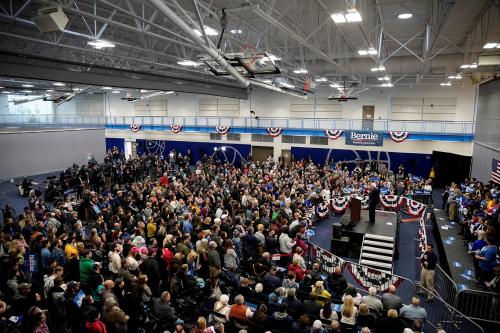
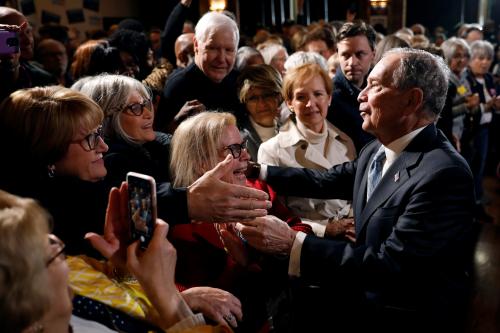
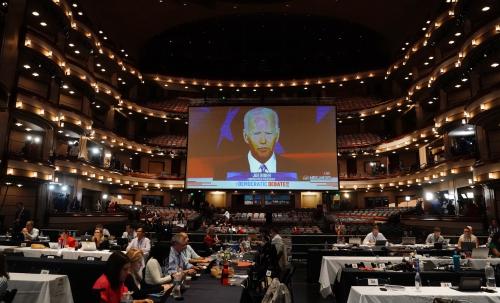
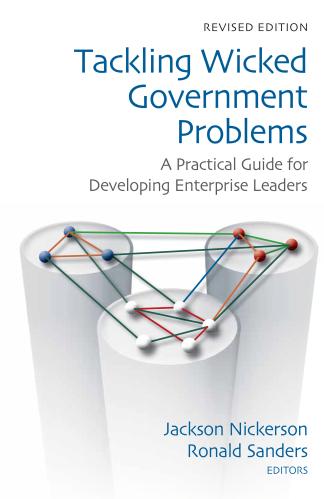
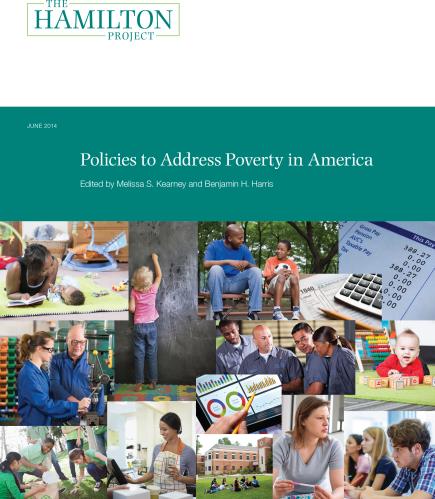
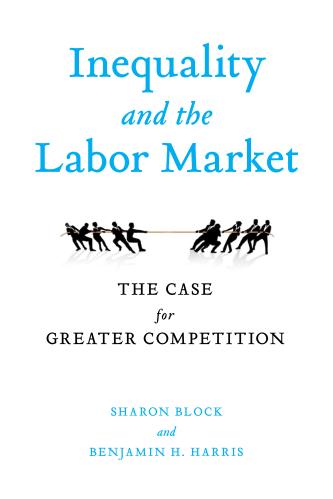




Commentary
Can Biden hold onto his lead?
June 20, 2019